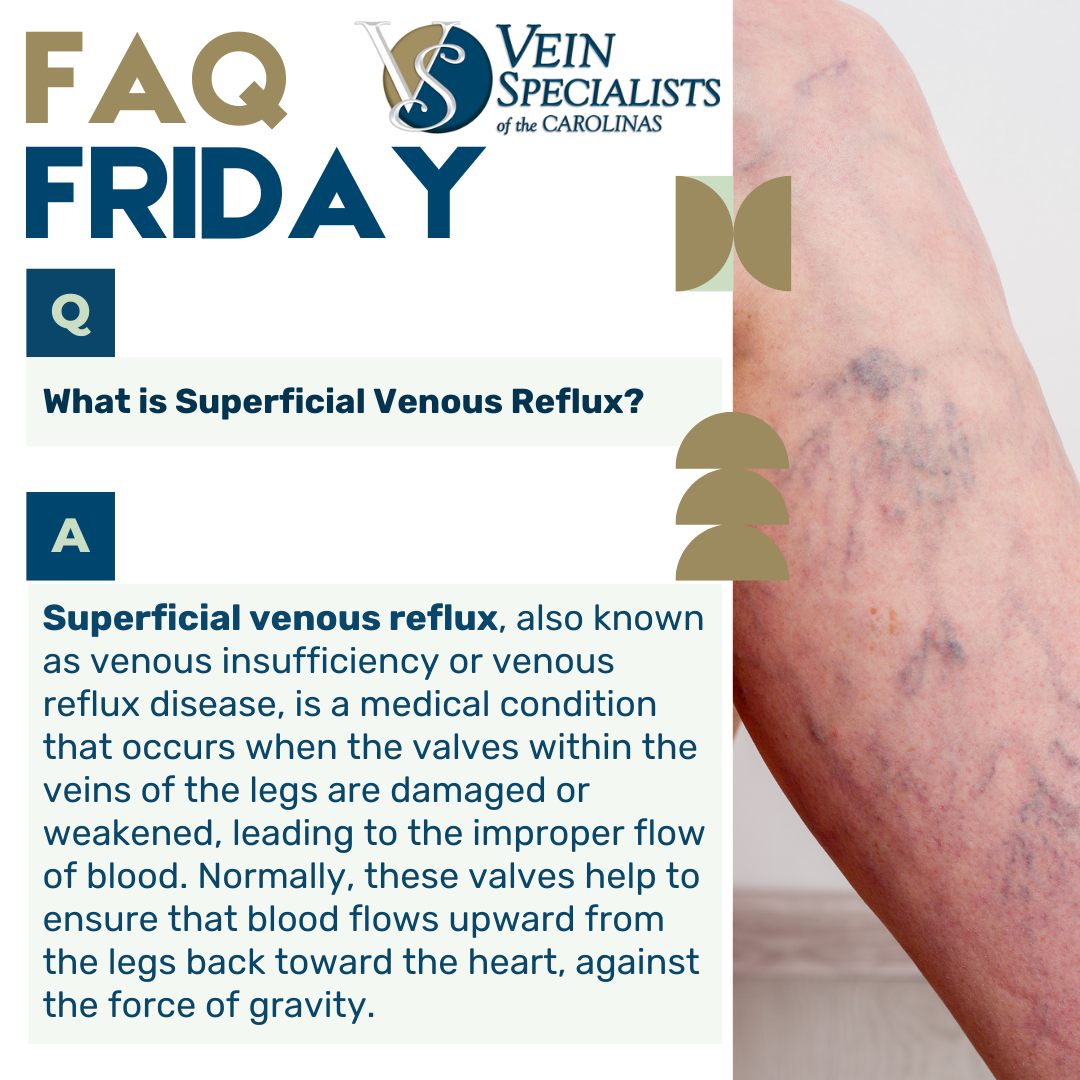Superficial venous reflux, also known as venous insufficiency or venous reflux disease, is a medical condition that occurs when the valves within the veins of the legs are damaged or weakened, leading to the improper flow of blood. Normally, these valves help to ensure that blood flows upward from the legs back toward the heart, against the force of gravity.
When these valves become inefficient or fail to close properly, blood can flow backward and pool in the veins of the legs. This can cause various symptoms and complications, such as:
- Varicose veins: Superficial veins become enlarged, twisted, and visible under the skin, often appearing as blue or purple bulges.
- Swelling: Blood pooling in the veins can lead to swelling in the legs and ankles.
- Pain and discomfort: Patients may experience aching, throbbing, or a heavy feeling in the legs, particularly after prolonged periods of standing or sitting.
- Skin changes: Over time, the skin around the affected veins may become discolored, dry, and itchy. In severe cases, ulcers (open sores) may develop.
- Blood clots: While less common, superficial venous reflux can increase the risk of developing blood clots, which can be a serious medical complication.
Superficial venous reflux is often diagnosed through clinical evaluation, medical history, and ultrasound imaging of the leg veins. Treatment options depend on the severity of the condition and may include:
- Lifestyle modifications: Elevating the legs, exercising regularly, and avoiding prolonged periods of sitting or standing can help improve blood circulation.
- Compression therapy: Wearing compression stockings can help alleviate symptoms and improve blood flow in the legs.
- Endovenous procedures: Minimally invasive techniques, such as radiofrequency ablation or laser therapy, can be used to close or seal off the affected veins.
- Surgical removal: In some cases, particularly when varicose veins are severe, surgical procedures may be necessary to remove or ligate the affected veins.
Many patients can now find relief both cosmetically and symptomatically with a less invasive procedure. It is Dr. Draughn’s belief that any time you use a less invasive procedure to accomplish the same result it’s an improvement in medical care. Contact VSC to have our vein care team take a close and thorough look at your personal health care needs to provide a plan designed specifically for you.
“All We Do Is Veins, All Day Every Day.”
#VeinCare #SuperficialVenousReflux #VaricoseVeins #SpiderVeins #VeinHealth

